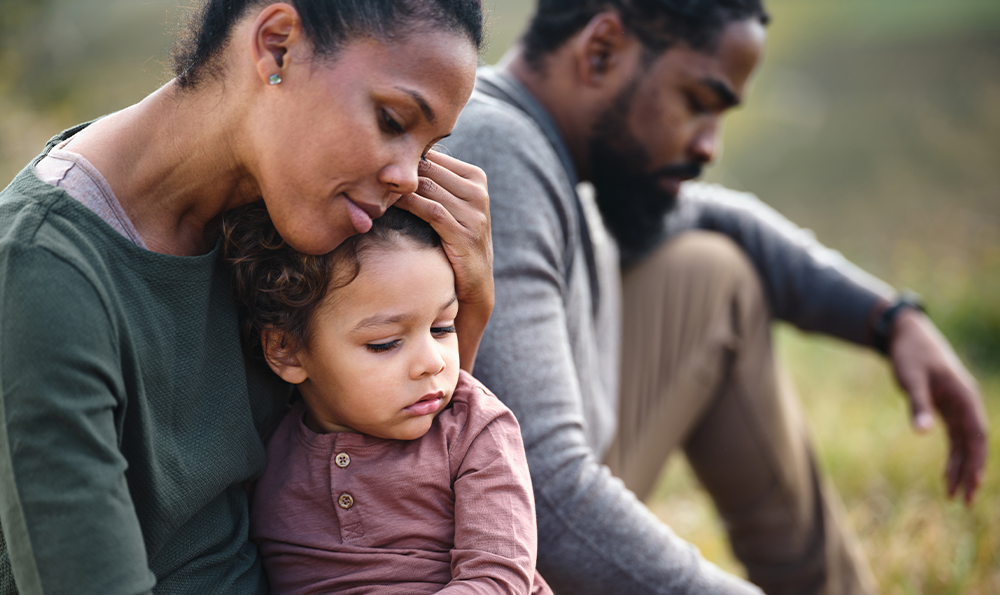A child’s brain is like a sponge. It absorbs knowledge and experiences as they move through the world. When those experiences are positive, it reinforces feelings of safety and security. But when they’re negative—known as adverse childhood experiences or ACEs—they can have a lingering effect on a child’s physical and emotional health.
What is an adverse childhood experience (ACE)?
Any traumatic event or experience that interrupts a child’s life can bring on stress. Some examples are obvious—losing a loved one, divorce, or domestic violence. But as Nicole Thomas, MD, a child and adolescent psychiatrist at Atlantic Health System explains, children can feel equally scared and helpless from ongoing traumas that are part of their everyday life.
“It’s not necessarily one major incident or event that we consider an ACE, but rather the accumulation of smaller, more complex, and repeating traumas that can lead to psychosocial changes in a child’s brain over time,” she says.
This can include lack of access to health care, job loss, a disrupted living situation, financial challenges, legal troubles, housing insecurities, and the list goes on. For many families, these challenges often appear together, creating lots of uncertainty.
Partnering with your pediatrician
According to Dr. Thomas, ACEs are high on a pediatrician’s radar. Pediatricians use screening tools during your child’s annual wellness visit to assess their mental, emotional, and physical health.
“If you’re aware of an adverse childhood event, talk with your pediatrician about it,” says Dr. Thomas, who also recommends telling your child’s teacher or school guidance counselor. “You might not see the downstream emotional effects right away, but signs of trauma can show up at any point; they can be obvious or really subtle.”
Signs of a stress response
Toddlers to kindergarten:
- Setbacks in walking, talking, or potty training
- Aggression through biting or tantrums
- Sleeping problems
- Separation anxiety from Mom or Dad
Elementary school-aged children:
- Bedwetting
- Sadness and irritability
- Phobias or insomnia
- Stomachaches and headaches
- Changes in school performance/interest
Adolescents and teenagers:
- Anxiety, depression, or mood disorders
- Withdrawal from school, friends, and family
- Decline in academics
- Exhibiting risky behaviors like rule-breaking, experimenting with drugs or alcohol
- Changes in sleeping and/or eating
Raising a resilient child
To help your child cope with life’s setbacks, teach them how to solve problems and regulate their emotions. It starts with:
- Providing your child with a safe and nurturing home environment
- Building a strong and dependable relationship with your child
- Taking time to talk through problems and behaviors with supportive limit-setting
- Being a role model for your child by displaying a positive example of healthy coping
- Getting the care and support you need as a caregiver
“Children are looking at their parents to see how they deal with a tough situation, and then they mirror the way you behave,” says Dr. Thomas. “They deal with adverse experiences in the same way they see it modeled for them, so if you demonstrate positivity, they will too.”












